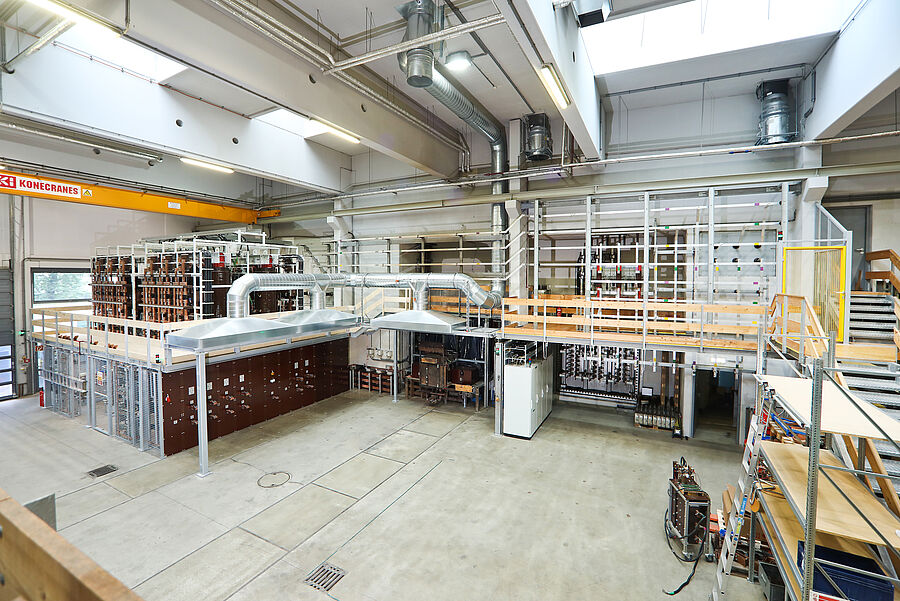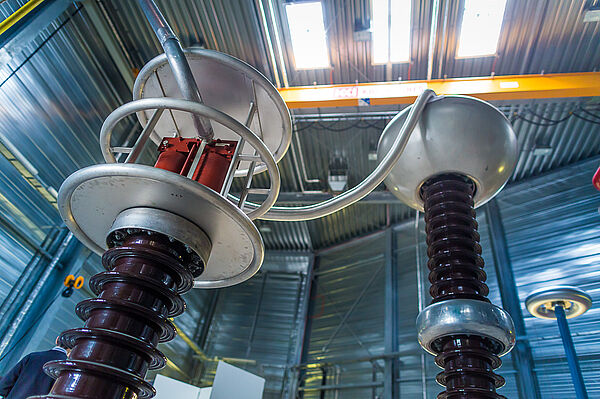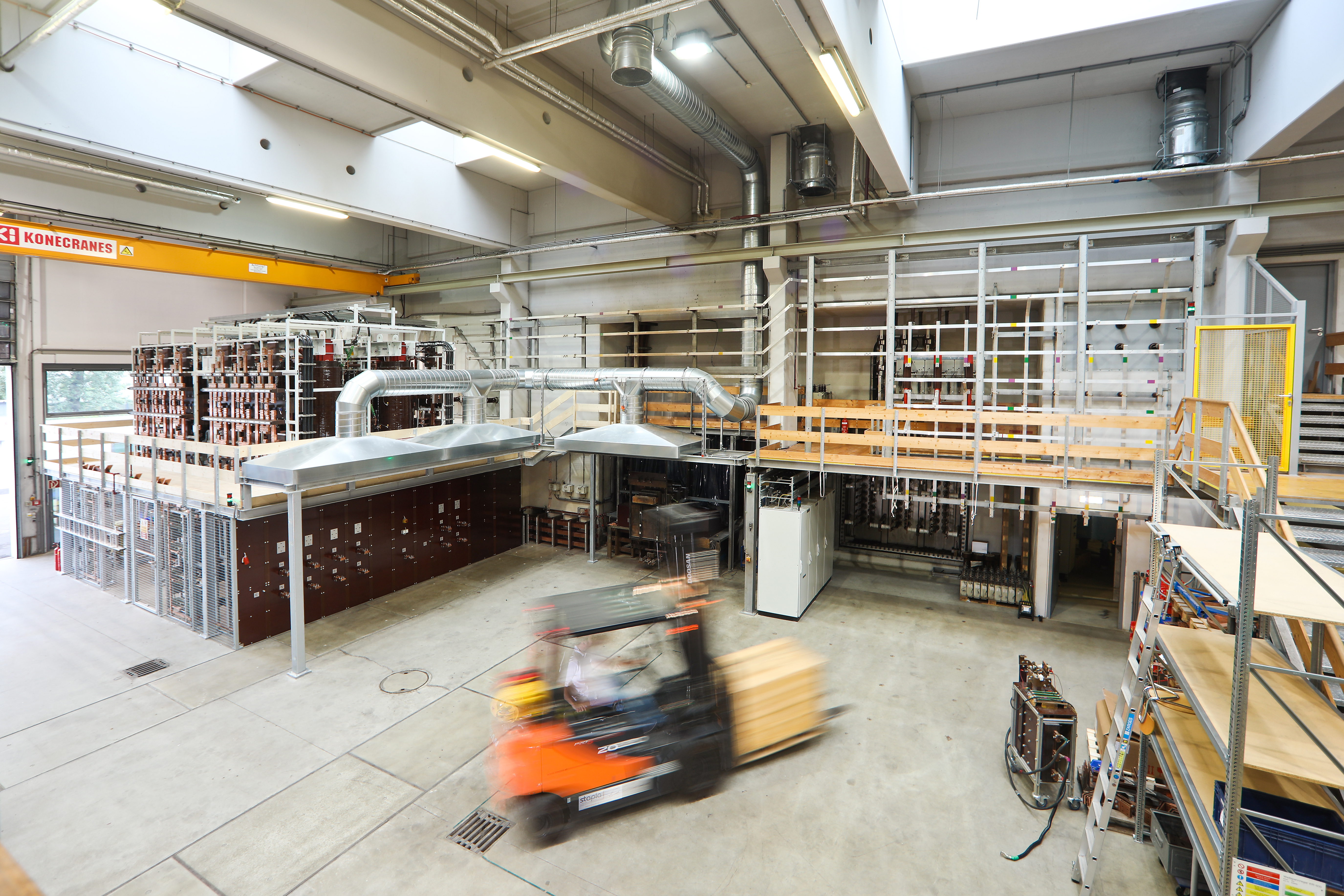AC: Innovative Testing Methods at the AIT AC Laboratory
The AIT AC Laboratory provides companies with a forward-looking platform for the development, testing, and validation of alternating current (AC) components. Equipped with state-of-the-art infrastructure and offering comprehensive services, the laboratory supports the integration of AC technologies in various applications such as renewable energy, electromobility, and industrial power supply.
Testing Services at the AIT AC Laboratory
The AIT AC Laboratory offers specialized testing procedures tailored to the demands of modern alternating current (AC) technologies. Each test is customized to meet customer needs, ensuring maximum efficiency and safety.
Evaluation of Switching Capacity
AC systems must withstand extreme stress, such as short-circuit events. The laboratory tests switching devices and protection systems under realistic conditions to verify their durability.
Impulse Current Testing
These tests simulate extreme current surges, such as those caused by lightning strikes, to ensure components like surge arresters and transformers function reliably under exceptional conditions.
Dielectric Testing
Insulation systems in AC equipment are tested for voltage withstand capability to ensure safety in high-voltage networks.
Thermal Testing and Continuous Current Testing
These tests assess whether components such as cables and switching devices heat up within standard limits under high current loads, ensuring safe long-term operation.
Typical Test Objects in the AC Laboratory
The AIT AC Laboratory is designed to handle a wide range of components and devices, including:
- Switching Devices and Protection Systems: Circuit breakers, fuses, and protection relays.
- Transformers: Tests for efficiency, voltage withstand, and operational safety.
- Cables and Wires: Stress tests and material evaluations.
- Surge Protection Systems: Arresters and grounding components.
Certifications and Accreditations
The AC Laboratory meets the highest quality standards and holds international accreditations, including:
- CB Testing Laboratory: Recognized by OVE as a national certification body.
- Compliance with International Standards: Comprehensive accreditations ensure adherence to global testing norms.
Technical Infrastructure of the AC Laboratory
The lab is equipped with state-of-the-art technology to perform high-current and high-voltage tests.
High-Current Testing
- Voltages: 0.1 to 40 kV
- Power: Up to 120 MVA
- Current: Maximum 150 kA
High-Voltage Testing
- Fixed High Voltage: Up to 600 kV AC
- Impulse Voltages: Up to 1200 kV (LI)
Applications of the AC Laboratory
Renewable Energy Systems
Testing and validation of inverters, transformers, and grid connection components for wind and solar power systems.
Electromobility
Testing of charging infrastructure, onboard power systems, and converters to ensure reliability in electric vehicles.
Industrial Applications
Optimization of AC systems in data centers, production facilities, and other applications requiring maximum efficiency and reliability.
Advantages of the AC Laboratory
The AIT AC Laboratory offers companies unique opportunities to optimize their products and enter new markets:
- State-of-the-Art Infrastructure: Testing equipment and methods at the cutting edge of technology.
- Customized Solutions: Flexibility in designing test scenarios.
- Comprehensive Support: From product development to certification.
Frequently Asked Questions (FAQs)
- Which components can be tested in the AC Laboratory?
Typical test objects include switching devices, transformers, cables, and surge arresters. - What testing services does the lab offer?
The lab conducts short-circuit, impulse current, and dielectric testing, among others. - How does AC differ from DC?
AC is better suited for long-distance transmission due to its ease of transformation, while DC is more efficient for specific applications like batteries. - Which industries benefit from the testing services?
Industries such as renewable energy, electromobility, and industrial power supply gain significant advantages from these tests.





